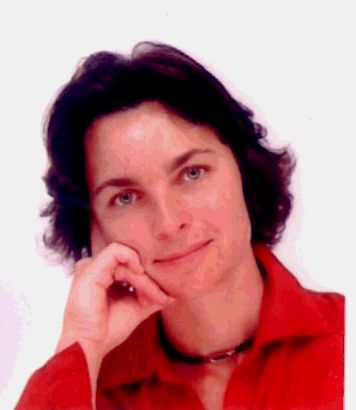JANA
DANKOVICOVA'S HOME PAGE
 |
Contact information:
Address:
Dr. J. Dankovicova
Human Communication Department
University College London
Chandler House
2, Wakefield Street
London WC1N 1PG, U.K. Telephone: ++44 - 020 - 7679 4173/4200
Fax: ++44 - 020 - 7713 0861
E-mail: j.dankovicova@ucl.ac.uk
|
At present I work in the Department of Human Communication
Science as a lecturer in Clinical Linguistics. I am a phonetician
by training but my interests extend to neurolinguistics and
cognitive neuropsychology of language. My main area of interest
in phonetics is speech prosody (articulation rate, intonation,
rhythm). This includes working towards a theory of articulation
rate variation, applications of prosody in speech technology (modelling
intonation and articulation rate variation) and clinical
applications. In the area of clinical research, my main interest
is 'foreign accent syndrome'.
Research:
- ProSynth
ProSynth stands for "An integrated
prosodic approach to device-independent, natural-sounding
speech synthesis" and it is a collaborative EPSRC
research project held by University College London, the
University of Cambridge and the University of York. In
1998-99 I was involved in the project as a research
fellow, working with Jill House and Mark Huckvale, UCL,
on modelling intonation. I continue being involved in the
project though at the moment just informally - out of
interest.
- Foreign accent syndrome
'Foreign accent syndrome' can be defined as
a relatively rare neurological disorder that involves
foreign-sounding speech, usually following a stroke.
My interest in FAS began when I worked as a Research
Assistant with John C. Marshall and Jennifer Gurd in the
Neuropsychology Unit, Department of Clinical Neurology
and the Phonetics
Laboratory, University of Oxford. The case study I
worked on involved a woman who before stroke spoke
Southern British English but after stroke appeared to
speak with a Scottish accent. The investigation consisted
of impressionistic phonetic and, particularly, acoustic
analyses of her speech both before and after the stroke,
and comparing the two. The main questions were whether
the speaker is consistently using a particular Scottish
accent, or whether she only appears to listeners to be
speaking Scottish English, and if so, what the
characteristics of her speech responsible for this
impression are. A collaborative paper on this case has
been submitted to Clinical Phonetics and Linguistics.
- Articulation rate variation
This research stems directly from my PhD dissertation (1998,
University of Oxford; abstract)
and M.Phil. dissertation (1994, University of Oxford).
Both concern articulation rate variation in Czech (an
extended version of the M.Phil. pilot study was published
in the Journal of Phonetics, 1997). A pilot study
on English is included in the paper published in the Proceedings
of the XIVth International Congress of Phonetic Sciences,
1999, San Francisco.
List of
publications
For information about my background and teaching experience
see my C.V.
Last revised:
February 2000
